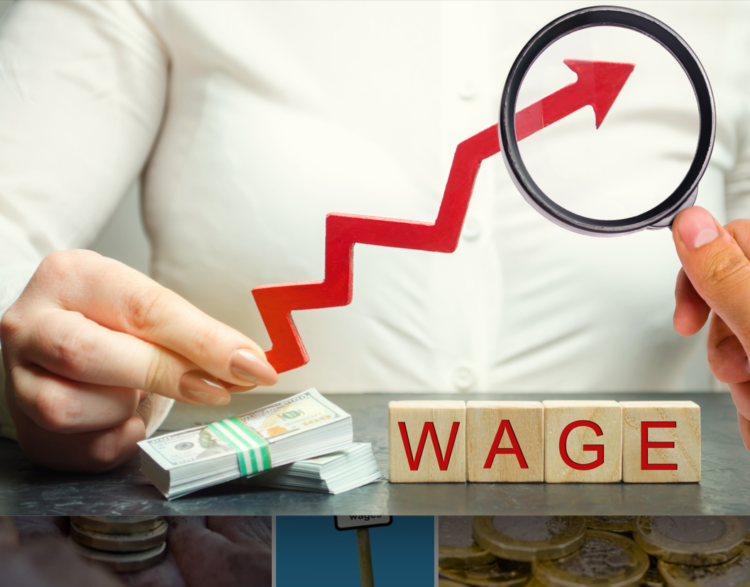Anticipated wage growth for the next twelve months fell last quarter from 4 percent to 3 percent, according to the latest Labour Market Outlook (LMO) report from the CIPD.
The survey of 2,032 UK employers, conducted in June and July 2024, found that pay increases had remained at 5 percent during 2023, but had dropped to 4 percent in 2024.
As cost of living challenges continue to bite, the CIPD urged employers to look at other ways they can support employees. For example, by improving job quality and incorporating financial wellness into their wellbeing strategies.
Employer pay expectations slowing
The quarterly report asks employers about their pay, hiring and redundancy plans. It showed that employer pay expectations have slowed to their lowest rate since the summer of 2022. Median basic pay rise expectations fell from 4 percent to 3 percent in the private and voluntary sectors. For public sector employers it dropped from 3 percent to 2.5 percent.
James Cockett, CIPD senior labour market economist, said: “Falls in expected pay rises were anticipated now inflation is within a tolerable range for employees.
“However, many workers will still feel worse off than they did a couple of years ago, so other benefits like providing flexible working, offering benefits that help boost take home pay, and taking steps to improve job quality, are in employers’ interest to help both support and retain staff.”
Recruitment plans also drop
LMO results also revealed that the net employment balance, which measures the difference between employers expecting to increase staff levels in the next three months and those expecting to decrease them, has continued to fall. It was +18 this quarter, +19 last quarter, and +22 the quarter before.
However, 66 percent of employers do plan to recruit in the next three months. Hiring plans were most positive in the public sector, where 81 percent of employers were looking to recruit.
But more than a third (37 percent) of employers said they have “hard-to-fill” vacancies. And such vacancies are more prevalent in the public sector (48 percent) compared to the private sector (34 percent).
Day-one rights
The CIPD said that the employment landscape will be shaped further by the government’s ‘Plan to Make Work Pay’.
Given the UK is in a cooling labour market, the professional body said that it’s vital that the government’s proposals support rather than undermine employment opportunities.
The body reiterated previous calls for the government to consult closely with employers and business groups to ensure that any changes to day-one rights and probation periods have the best outcomes for both individuals and employers.
Public sector
The outlook report also highlighted that while the public sector has the highest recruitment intentions, it also has the highest likelihood of plans to decrease staff levels.
This could be because it has a higher rate of hard-to-fill vacancies, the CIPD explained. Added to this, the public sector was more likely to anticipate significant problems filling future vacancies than the private sector, 38 percent versus 15 percent, respectively.
The CIPD said that these findings point to a sector that urgently needs to recruit but cannot hire the people it needs.
Government pulls pay lever
The survey, conducted just before the July 2024 general election, found that 48 percent of public sector employers were planning a pay decision in the next three months (July-September 2024), compared to just 17 percent of private sector employers.
For the same three months, the LMO shows employers expected pay increases of just 2.5 percent. This is much lower than the 4.75 percent to 6 percent, which was confirmed by chancellor Rachel Reeves in late July.
Cockett said: “Our survey suggests that many public sector employers did not expect the level of pay rises that have been put in place by the government for the rest of 2024.
“Pay is the first lever the government has pulled in trying to make working in the public sector more attractive. However, on its own, it is unlikely to make a significant difference in helping gain candidates for hard-to-fill vacancies.”
He continued: “Strategic workforce planning to ensure the supply of qualified doctors, nurses and teachers is also important for the long-term success of the economy. Among the wider workforce investing in skills and training, people management and technology is key in unlocking productivity gains and relieving some workload stresses, thus leading to stronger economic growth. This will be fundamental in helping all organisations to become fit for the future.”












